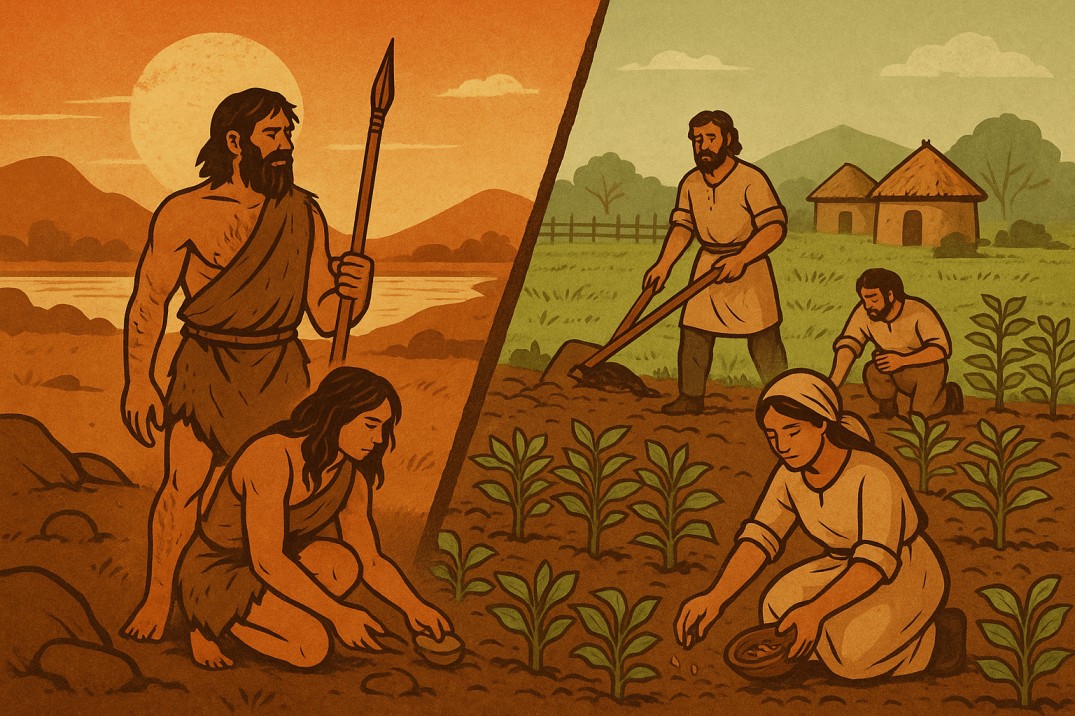Origins of Agriculture and Human Evolution
Alfredo Cortell-Nicolau et al., PNAS, March 31, 2025
Background of the Study
A landmark study published in the Proceedings of the National Academy of Sciences (PNAS) challenges traditional theories about the origins of agriculture. While earlier explanations emphasized climatic and ecological shifts, this research underscores the decisive role of human social interactions in humanity’s transition from hunting and gathering to farming — one of the most transformative milestones in human history.
Key Findings
🔑 Social Dynamics Over Environment
The study reveals that agriculture was not simply a response to climate change. Instead, cooperation, competition, and social exchange patterns played a central role in shaping the farming transition.
🔑 The Great Transition ~12,000 Years Ago
The shift from foraging to farming marked the end of a subsistence lifestyle that had sustained humanity for hundreds of millennia, initiating cultivation, animal domestication, and permanent settlements.
🔑 Population Growth and Mortality Differences
Demographic pressures strongly influenced the spread of agriculture. Farming communities with higher fertility and survival rates gradually outcompeted hunter-gatherer groups, reinforcing the shift.
Conclusion
🎯 Farming emerged as a social transformation, not just an ecological adaptation.
🎯 Demographic dynamics strengthened the permanence and spread of agriculture.
🎯 The agricultural revolution reflects a fusion of social and environmental forces.
🎯 This research reframes early farming as a product of collective human behaviour, highlighting how cooperation and social networks can drive civilizational turning points.








